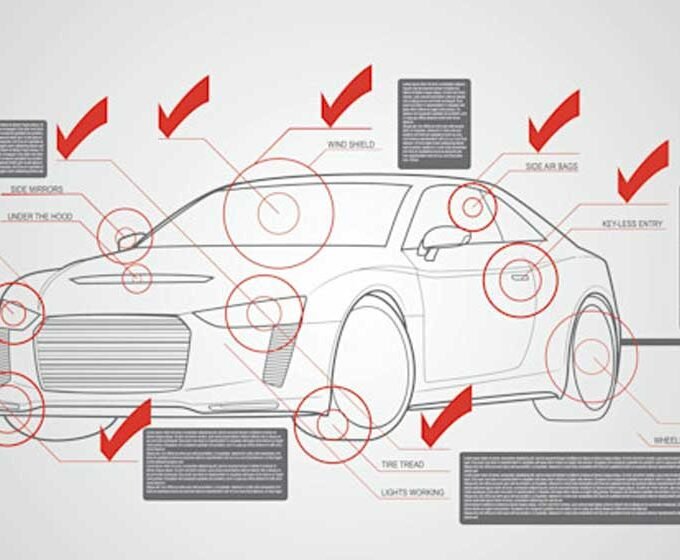The automotive industry is undergoing a transformative shift, driven by technological advancements and evolving consumer behaviors. In this dynamic environment, data analytics has emerged as a critical tool for car dealers and automotive businesses. Leveraging data analytics allows these entities to gain valuable insights, optimize operations, and enhance customer experiences. This blog post explores the importance of data analytics in the automotive industry, its applications, and how car market data solutions can revolutionize the way car dealers operate.
The Importance of Data Analytics in the Automotive Industry
Data analytics involves analyzing raw data to extract meaningful patterns, trends, and insights. In the automotive industry, this can encompass a wide range of data sources, including sales records, customer demographics, vehicle performance data, and market trends. By harnessing the power of data analytics, car dealers and automotive companies can make informed decisions that drive growth and efficiency.
Key Benefits of Data Analytics for Car Dealers
- Enhanced Customer Insights: Data analytics enables car dealers to understand customer preferences, behaviors, and buying patterns. By analyzing data from various touchpoints, such as website visits, social media interactions, and sales records, dealers can create detailed customer profiles. This information can be used to personalize marketing efforts, tailor sales strategies, and improve customer satisfaction.
- Optimized Inventory Management: Effective inventory management is crucial for car dealers. Data analytics can help dealers predict demand for specific models, colors, and features, allowing them to stock the right vehicles at the right time. This reduces the risk of overstocking or understocking, leading to better resource utilization and higher profitability.
- Improved Sales Performance: By analyzing sales data, car dealers can identify trends and patterns that indicate which sales strategies are most effective. This insight allows dealers to refine their sales processes, optimize pricing strategies, and enhance overall sales performance.
- Operational Efficiency: Data analytics can streamline various operational aspects of a dealership, from supply chain management to after-sales service. By identifying inefficiencies and bottlenecks, dealers can implement targeted improvements that reduce costs and enhance productivity.
- Competitive Advantage: In a competitive market, staying ahead of the curve is essential. Data analytics provides dealers with actionable insights into market trends, competitor strategies, and emerging opportunities. This enables dealers to adapt quickly and maintain a competitive edge.
Applications of Data Analytics in the Automotive Industry
- Predictive Analytics: Predictive analytics uses historical data to forecast future trends and behaviors. In the automotive industry, this can be applied to predict vehicle demand, customer preferences, and market shifts. For instance, dealers can use predictive models to anticipate the popularity of electric vehicles and adjust their inventory accordingly.
- Customer Segmentation: By segmenting customers based on various criteria, such as demographics, purchasing behavior, and vehicle preferences, dealers can develop targeted marketing campaigns. This ensures that marketing efforts are more relevant and effective, leading to higher conversion rates.
- Price Optimization: Data analytics can help dealers determine optimal pricing strategies by analyzing factors such as market demand, competitor pricing, and historical sales data. This allows dealers to set competitive prices that maximize profits while attracting customers.
- Sales Funnel Analysis: Analyzing the sales funnel helps dealers understand where potential customers drop off in the buying process. This insight allows dealers to address pain points and improve the overall customer journey, increasing the likelihood of conversions.
- After-Sales Service: Data analytics can enhance after-sales service by predicting maintenance needs and identifying common issues. This allows dealers to offer proactive service, improving customer satisfaction and loyalty.
Car Market Data Solutions: Transforming Dealerships
Car market data solutions refer to specialized tools and platforms designed to collect, analyze, and present automotive data. These solutions provide car dealers with comprehensive insights that drive strategic decision-making. Here’s how car market data solutions can transform dealerships:
- Centralized Data Management: Car market data solutions consolidate data from various sources into a single platform. This makes it easier for dealers to access and analyze information, reducing the complexity of data management.
- Real-Time Insights: Many car market data solutions offer real-time data analytics, providing dealers with up-to-date information on market trends, customer behaviors, and inventory levels. This allows dealers to make timely decisions and respond quickly to changes in the market.
- Customizable Dashboards: These solutions often feature customizable dashboards that present key metrics and insights in an easily digestible format. Dealers can tailor these dashboards to focus on specific areas of interest, such as sales performance, inventory management, or customer satisfaction.
- Advanced Analytics Tools: Car market data solutions come equipped with advanced analytics tools, such as machine learning algorithms and predictive models. These tools enable dealers to perform in-depth analyses and gain deeper insights into their operations.
- Integration with Existing Systems: Many car market data solutions can be integrated with existing dealership management systems (DMS) and customer relationship management (CRM) platforms. This ensures a seamless flow of data and enhances the overall efficiency of dealership operations.
Implementing Data Analytics: Best Practices
To effectively implement data analytics in your dealership, consider the following best practices:
- Define Clear Objectives: Start by defining clear objectives for your data analytics initiatives. What specific goals do you want to achieve? Whether it’s improving sales performance, enhancing customer satisfaction, or optimizing inventory management, having clear objectives will guide your efforts.
- Invest in the Right Tools: Choose data analytics tools and platforms that align with your dealership’s needs and objectives. Look for solutions that offer robust analytics capabilities, user-friendly interfaces, and integration options.
- Train Your Team: Ensure that your team is well-versed in using data analytics tools and interpreting the insights they generate. Provide training and resources to help them make the most of these tools.
- Leverage Data from Multiple Sources: Collect data from various sources, including sales records, customer feedback, social media, and market research. This will provide a holistic view of your dealership’s performance and market conditions.
- Continuously Monitor and Adjust: Data analytics is not a one-time effort. Continuously monitor your analytics efforts and adjust your strategies based on the insights you gain. Stay updated with the latest trends and advancements in data analytics to keep your dealership competitive.
Conclusion
Data analytics is revolutionizing the automotive industry, providing car dealers with powerful tools to enhance their operations and drive growth. By leveraging car market data solutions, dealers can gain valuable insights into customer behaviors, market trends, and operational efficiencies. Implementing data analytics effectively requires clear objectives, the right tools, and continuous monitoring. Embrace data analytics to stay ahead in the competitive automotive market and unlock new opportunities for success.
















